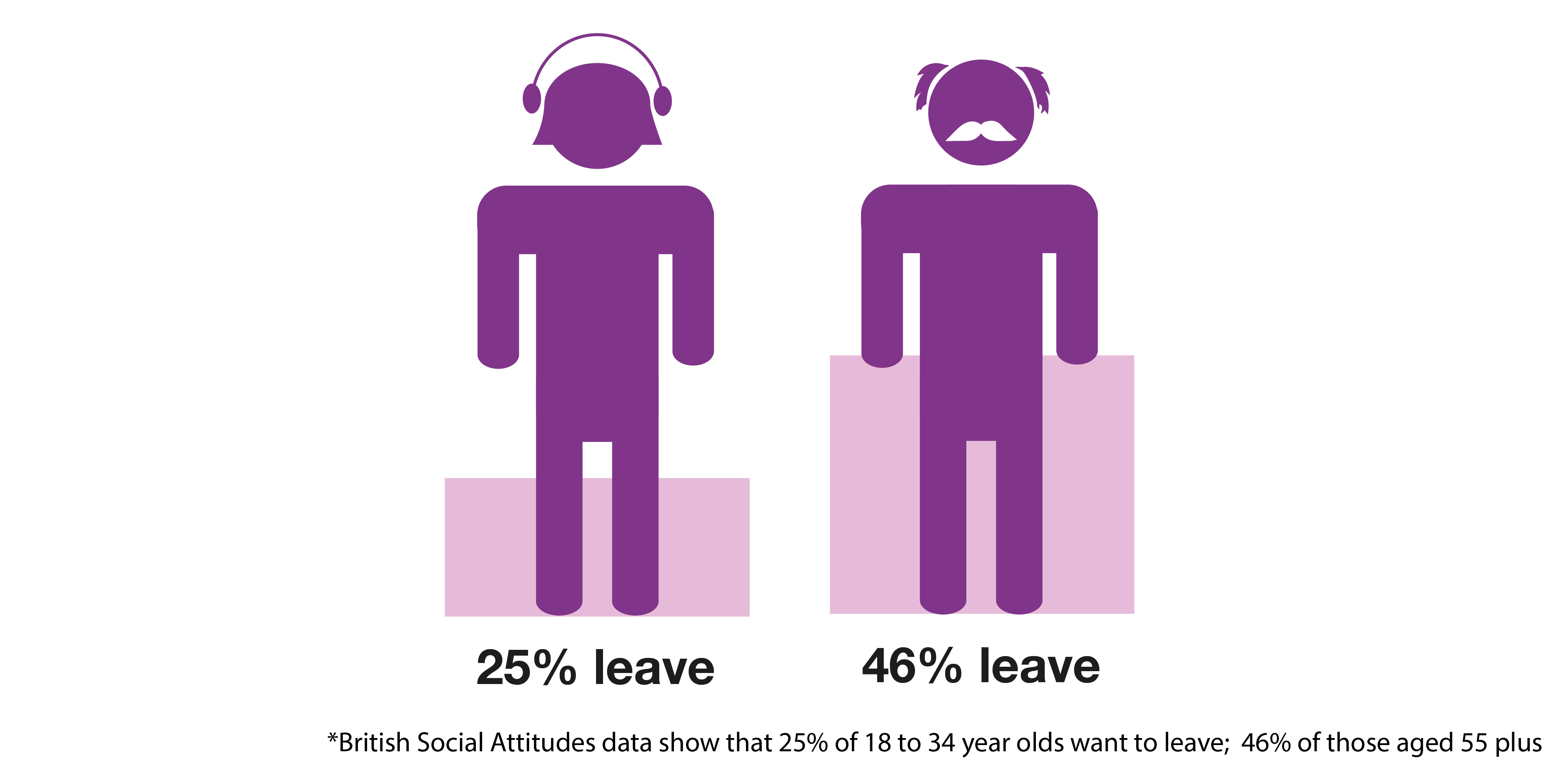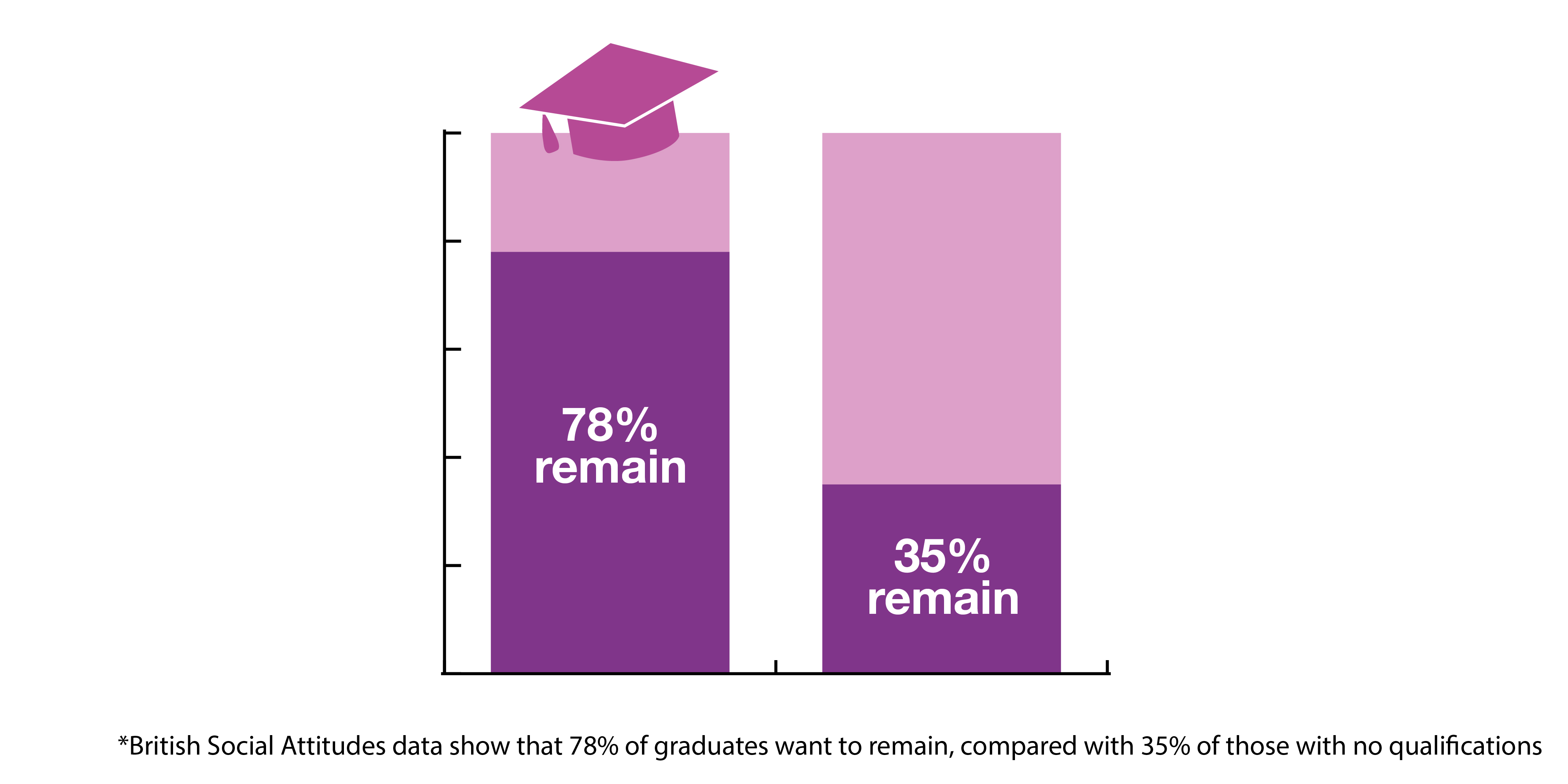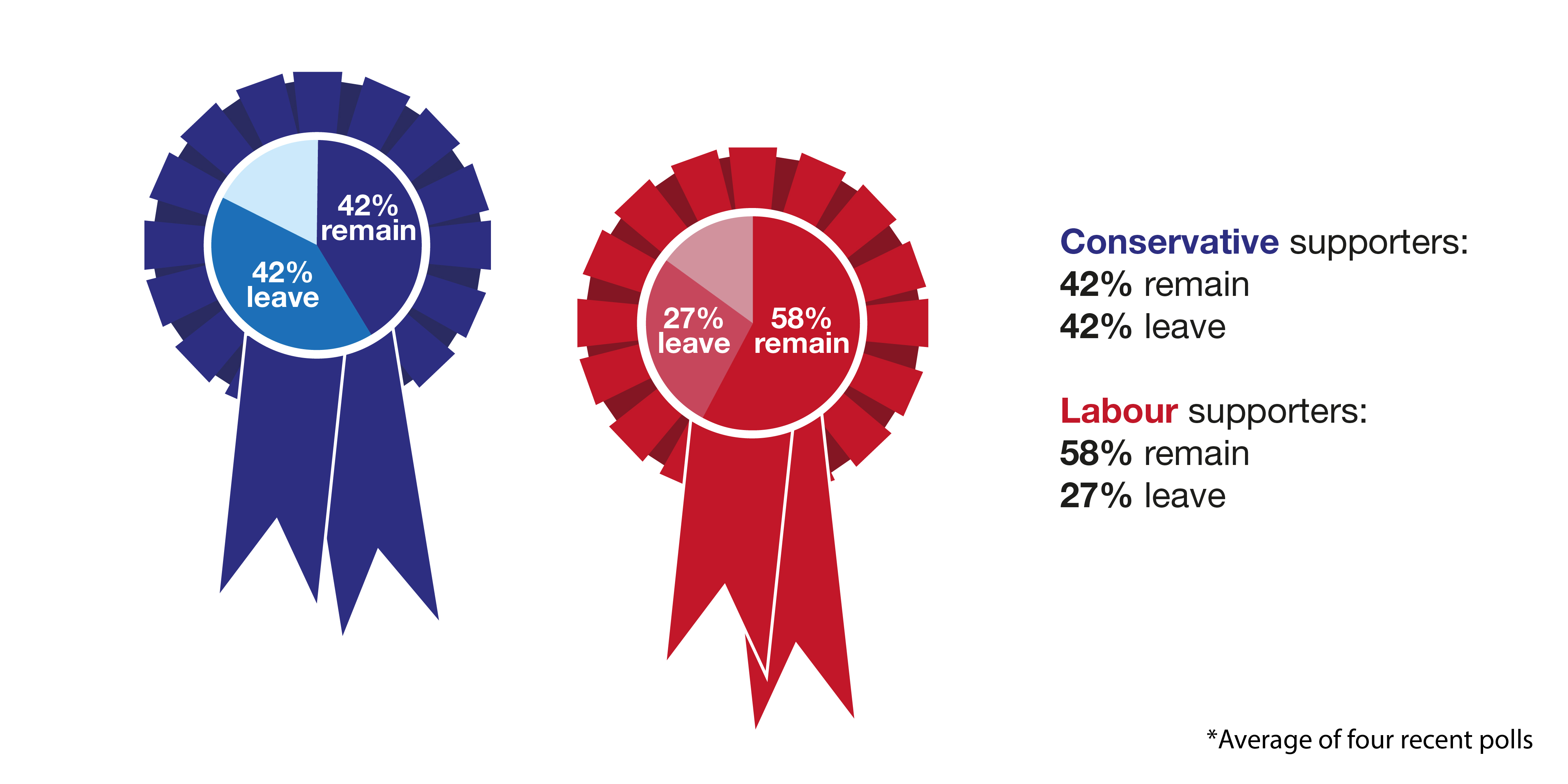The EU Referendum campaign is beginning to get into gear. Both sides will be attempting to identify and persuade their core audiences. Using the evidence of recent opinion polls as well as two major surveys, we examine in this paper which kinds of voters appear more likely to want to leave the EU and which are more likely to want to remain. To what extent do attitudes differ by people’s characteristics such as their age, class or educational background? Are different sections of British society likely to come to a similar conclusion on the merits of staying in or leaving the EU, or is the referendum likely to expose significant social divisions about the kind of country we want to be?
Social divisions
There are some significant social divisions in people’s attitudes towards Europe.
- Older people are much more likely than younger people to want to leave the EU.

- Graduates are more likely than those with few, if any, qualifications, to want to remain in the EU.

Party stance crucial
The stances taken by Conservative and Labour politicians could be crucial to the eventual outcome.
- Both Labour and (especially) Conservative supporters are split on the issue.

This leaves plenty of scope for both parties to persuade their supporters to change their minds – in one direction or the other.
Read the full analysis paper:
Britain Divided? Who Supports and Who Opposes EU Membership


